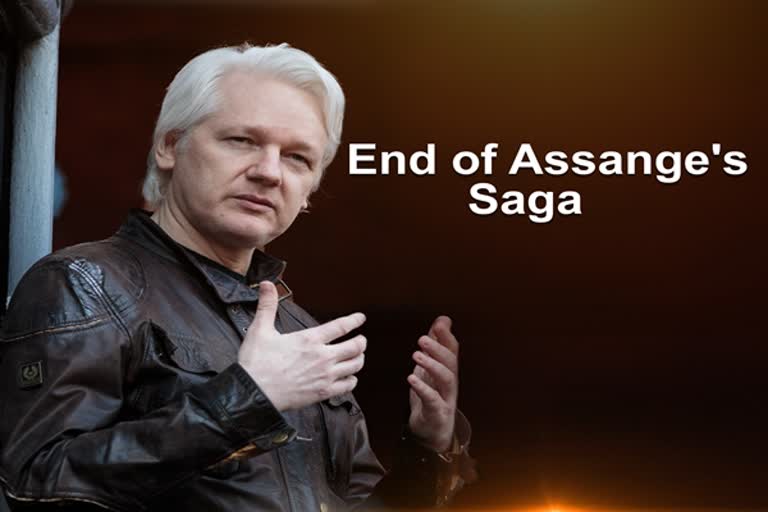Hyderabad: After taking refuge in the Ecuadorian embassy for more than seven years, Julian Assange, the founder of whistleblowing website WikiLeaks, was arrested on Wednesday.
He was arrested by the British authorities in London after his diplomatic status was revoked.
Here is all you need to know about Assange and his legal battles.
Who is Assange
Julian Assange was born in Townsville, in the Australian state of Queensland, in 1971.
The development of the internet gave him a chance to use his early promise at maths, though this, too, led to difficulties.
In 1995, Assange was accused along with a friend over dozens of hacking activities. Though the group of hackers was skilled enough to track detectives tracking them, he was eventually caught and pleaded guilty.
He was fined several thousand Australian dollars - only escaping a prison term on the condition that he did not reoffend.
WikiLeaks
In 2006, Assange began WikiLeaks with a group of like-minded people from across the web, creating a web-based "dead-letterbox" for would-be leakers.
WikiLeaks and Assange came to prominence after he released the footage of the US helicopter shooting civilians in Iraq.
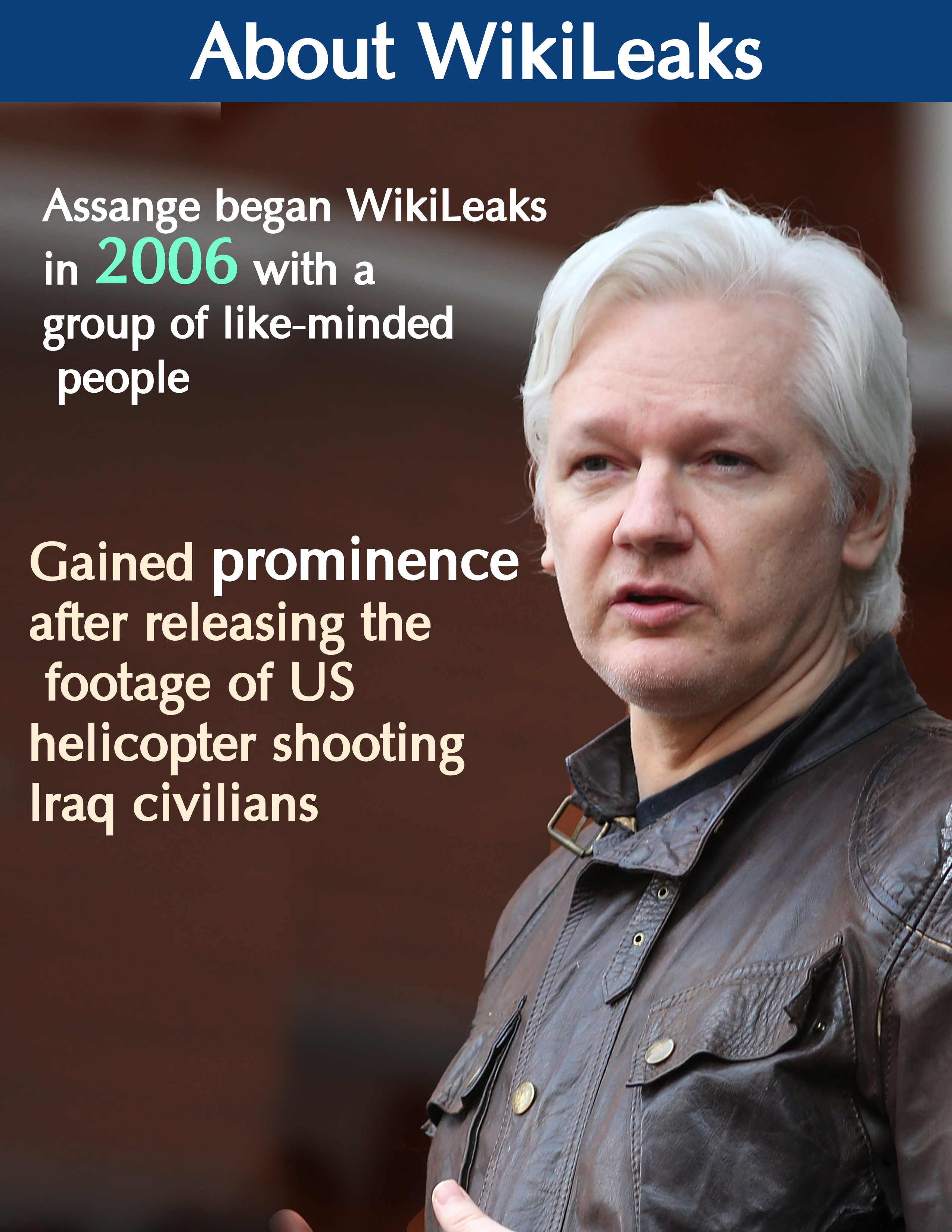
He promoted and defended the video, as well as the massive release of classified US military documents on the Afghan and Iraq wars in July and October 2010.
The whistle-blowing website went on to release new tranches of documents, including five million confidential emails from US-based intelligence company Stratfor.
But it also found itself fighting for survival in 2010, when a number of US financial institutions began to block donations.
Legal Battle
August, 2010: The Swedish Prosecutor's Office issues an arrest warrant for Assange for two separate allegations - one of rape and one of molestation. He is questioned by police in Stockholm and denies the claims.
November, 2010: International warrant for Assange's arrest: Stockholm District Court approved a request to detain Assange for questioning on suspicion of rape, sexual molestation and unlawful coercion. An international warrant for his arrest is issued by Swedish police. Interpol later issues a ''red notice'' for Assange.
December, 2010: £240,000 bail: Assange is granted conditional bail at the High Court in London after his supporters pay £240,000 in cash and sureties.
February, 2011: Extradition ruling: Following a hearing, District Judge Howard Riddle rules that Assange should be extradited to Sweden.
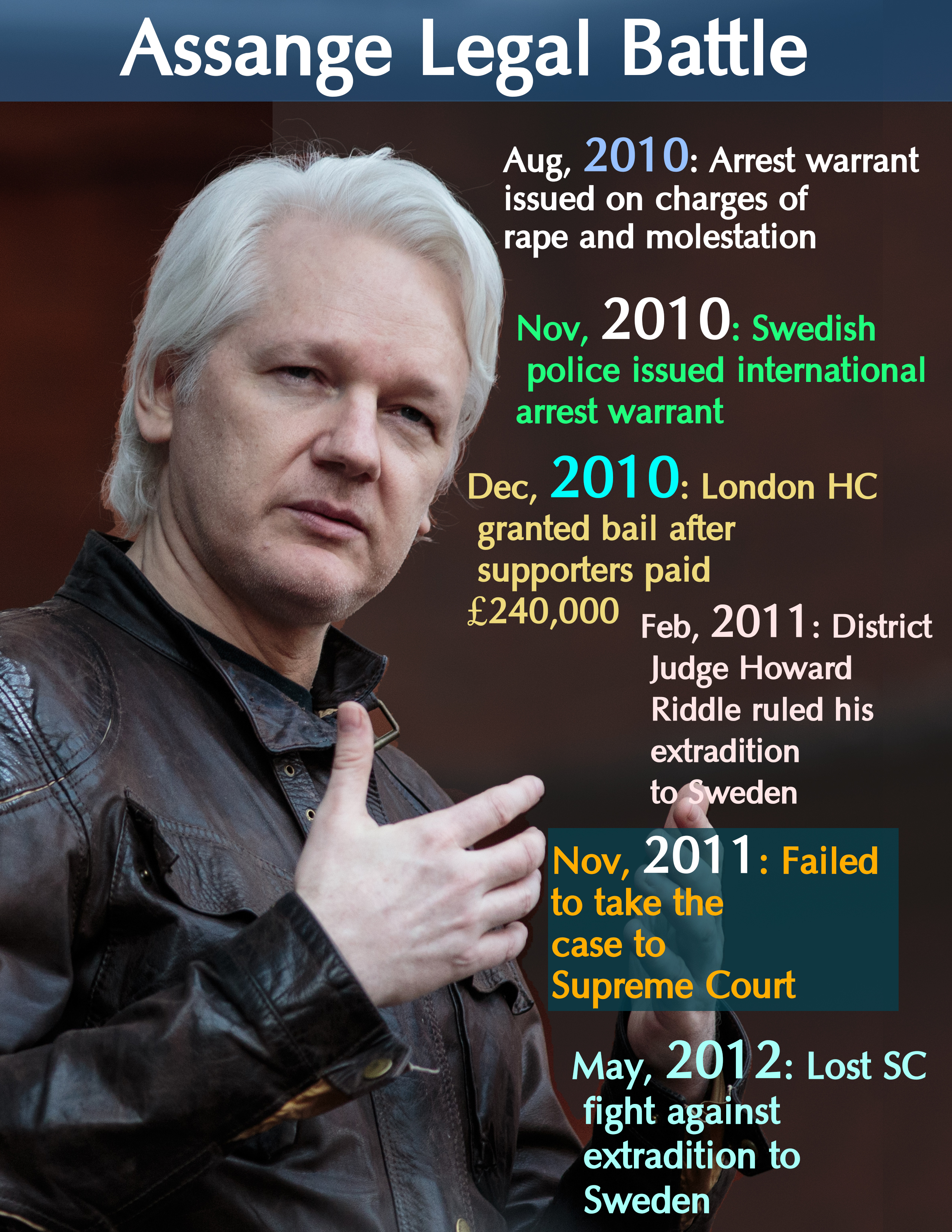
November, 2011: Loses extradition appeal: The high court rules he should be extradited to Sweden to face questioning. That leaves Assange one last option of taking the case to the Supreme Court.
May, 2012: Loses Supreme Court fight: Assange loses his Supreme Court fight against extradition to Sweden.
June, 2012: Assange enters Ecuadorian Embassy: He applies for political asylum at the Ecuadorian Embassy in London.
August, 2012: Ecuador grants asylum to Assange.
August, 2015: Molestation and coercion claims dropped: Swedish prosecutors dropped the investigation into allegations of sexual molestation and unlawful coercion because they have run out of time for questioning. The allegation of rape still stands and is not due to expire until 2020.
October, 2015: Met Police end 24-hour guard: Metropolitan police announces that officers will no longer be stationed outside the Ecuadorean embassy. The guard has cost taxpayers more than £11m.
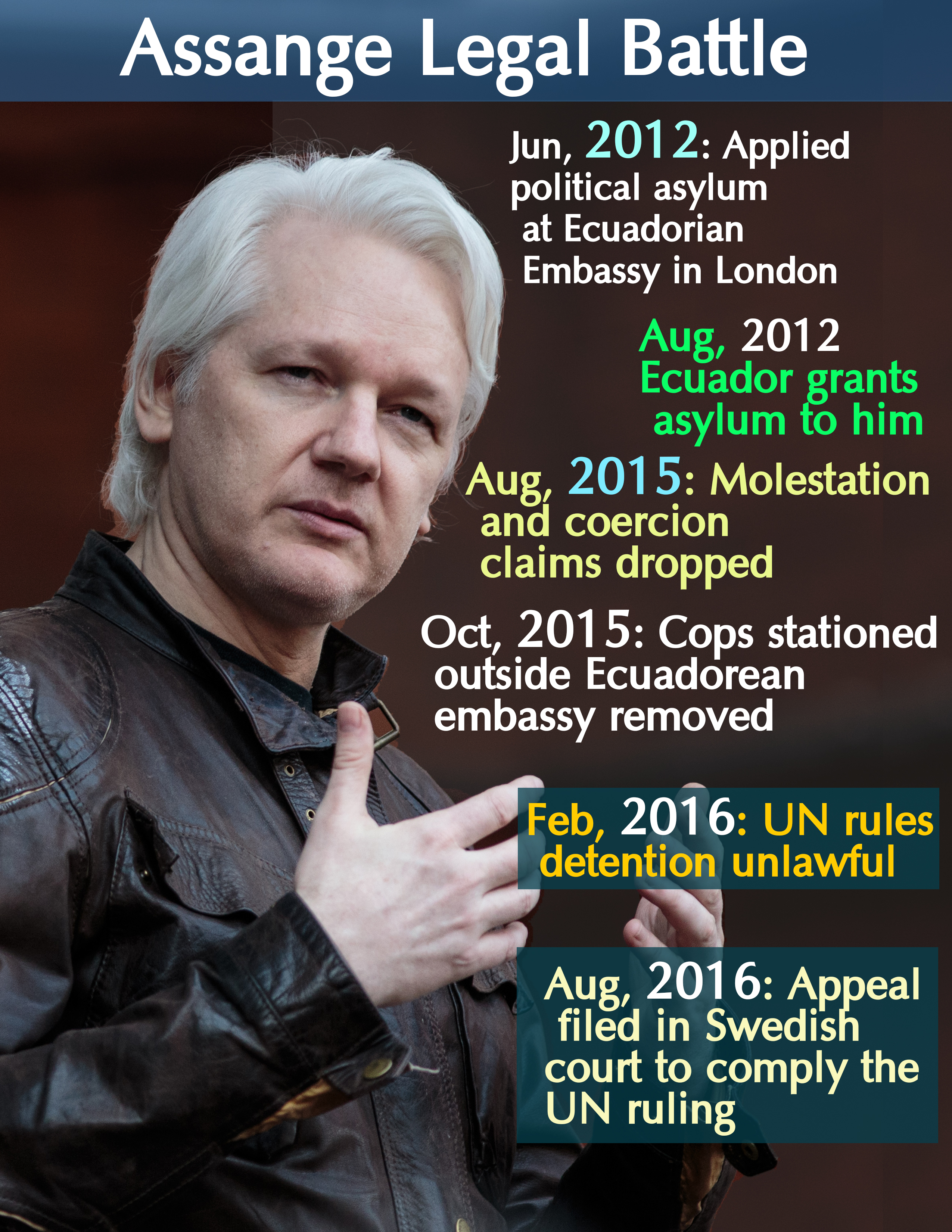
February, 2016: UN panel rules Julian Assange detention unlawful: The UN Working Group on Arbitrary Detention ruled that Assange had been subjected to "deprivation" in the Ecuadorian embassy.
August, 2016: Assange filed an appeal to a Swedish court arguing the country must comply with the UN working group’s findings.
November, 2016: Assange is questioned over the remaining sex allegation at the Ecuadorian embassy by Swedish authorities in a two-day interview.
May, 2017: Swedish authorities suddenly drop the investigation into an allegation of rape.
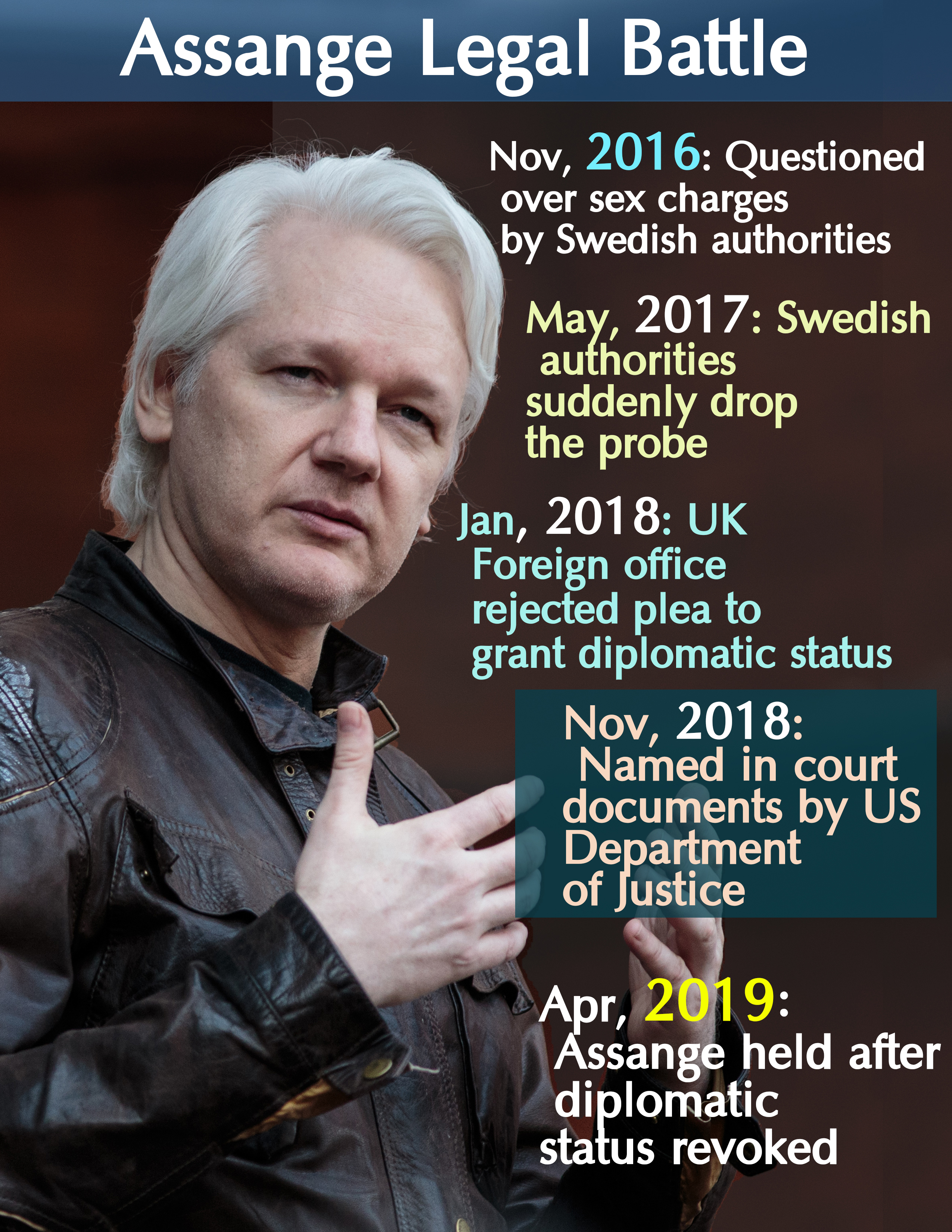
January, 2018: The UK Foreign Office turns down a request from the Ecuadorian government to grant Assange diplomatic status. Ecuador confirms it granted citizenship to Assange in December at his request.
November, 2018: The US Department of Justice inadvertently names Assange in a court document, suggesting he may have been charged in secret.
April, 2019: There are conflicting reports over whether Assange is to be expelled from the embassy.
April, 2019: Assange is arrested at the embassy in London after his diplomatic status is revoked.
Also Read: UK Police arrest WikiLeaks founder Julian Assange
End of Assange's Saga
According to Vienna Convention police, security officials cannot enter an embassy. However, agents of a particular mission can enter the diplomatic building with the consent of the head of the mission.
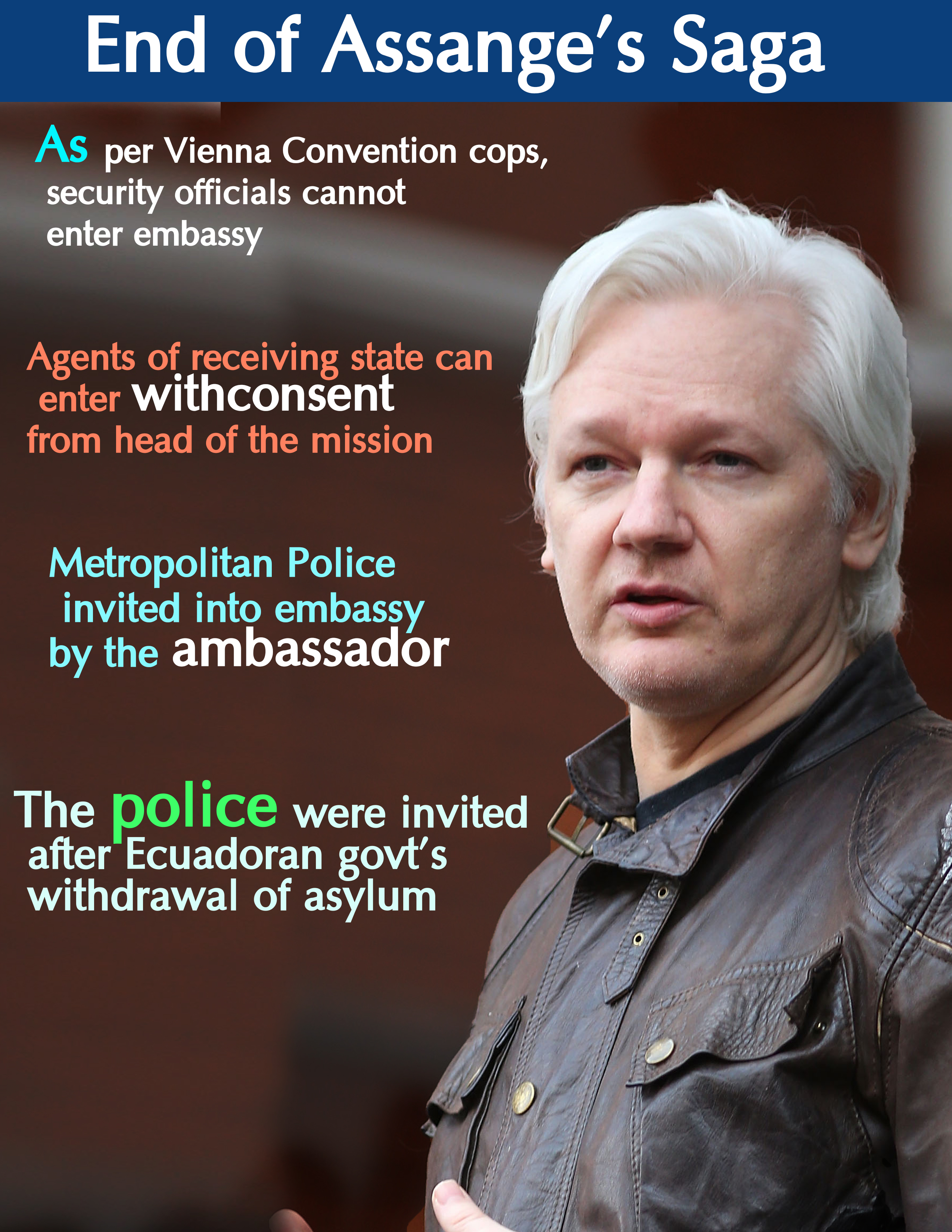
London's Metropolitan Police said in a statement on Thursday that they were "invited into the embassy by the ambassador, following the Ecuadoran government's withdrawal of asylum.
